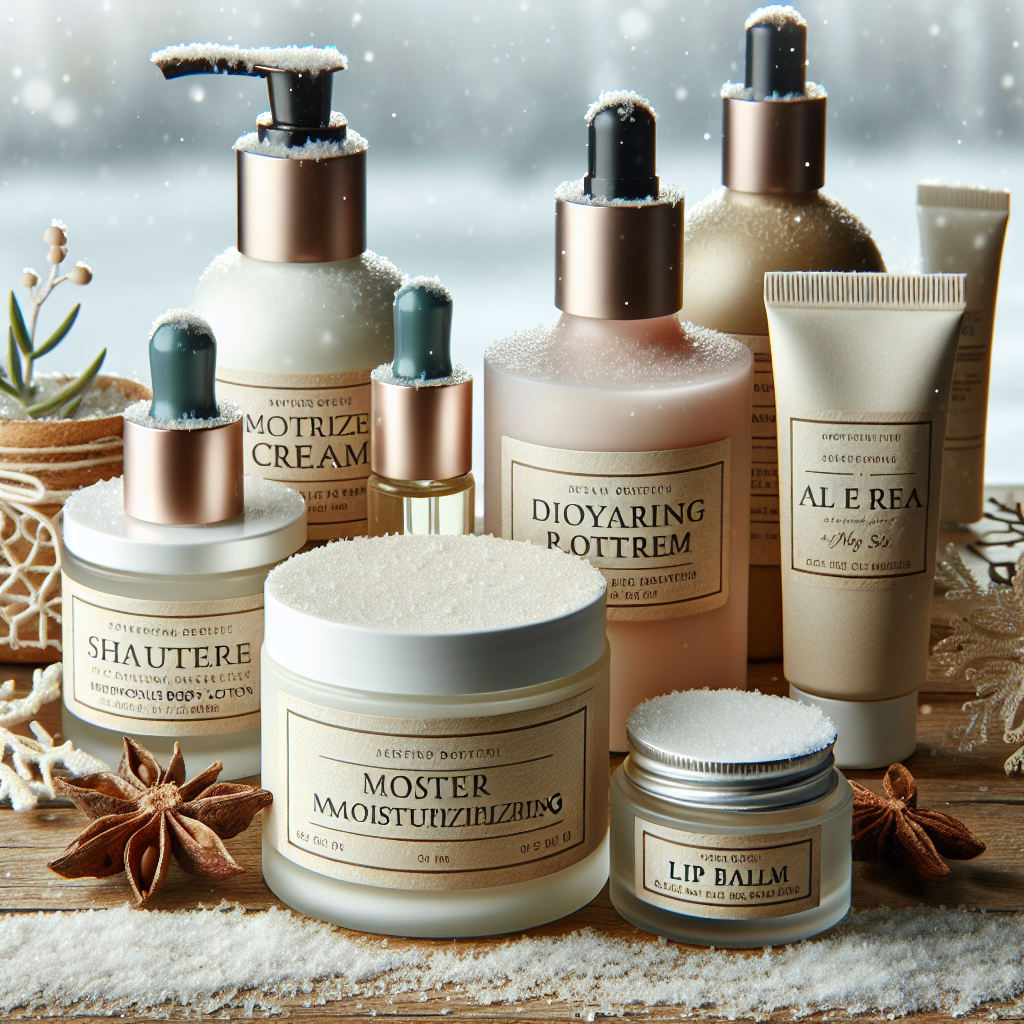As the leaves fall and the cold air begins to bite, the coziness of winter is often accompanied by an unwelcome guest: skin dryness. The plummeting temperatures and harsh winds can strip your skin of its natural oils, leaving it feeling tight, flaky, and uncomfortable. But fear not, as we delve into effective skin care solutions for winter dryness, you’ll discover strategies to keep your skin supple and hydrated even in the coldest months.
Understanding Winter Skin Challenges
The battle against winter skin woes begins with an understanding of what you’re up against. In winter, the humidity level outside drops, and the water in your skin evaporates more quickly; this is why your skin feels dry and tight. Inside, things aren’t much better as heaters can further strip the moisture from the air and from your skin.
But why is maintaining skin moisture so crucial? Your skin is the largest barrier against infection that your body has, and keeping your skin healthy helps keep this barrier strong. Dry skin can lead to cracks in the outer layer, leading to inflammation and a greater risk of infection.
Hydration and Nutrition
One of the most fundamental ways to combat dry skin is to hydrate from the inside out. Drinking plenty of water is essential, but so is consuming foods high in water content such as fruits and vegetables. Moreover, including omega-3 or omega-6 fatty acids in your diet can help. These fatty acids play a role in the health of the skin’s lipid layer, which helps maintain its hydration.
External Hydration
Topical hydration is just as important, and this is where the right skincare products come in. Look for creams and ointments that contain hyaluronic acid, glycerin, and ceramides, which are ingredients that draw moisture to the skin and lock it in. Applying moisturizers right after a shower or bath can also help trap the moisture on your skin.
Gentle Cleansing
When it’s cold outside, a hot bath can be tempting, but hot water can be harsh on your skin, potentially stripping away natural oils. Opt for lukewarm water instead, and consider using a gentle, fragrance-free cleanser. Harsh soaps can remove the skin’s natural oils and exacerbate dryness.
Protection From the Elements
Stepping out into the winter weather without proper protection can undo all your skin care efforts. Always wear gloves and scarves to protect your skin from the cold air and wind. Furthermore, don’t forget sunscreen. The winter sun can be just as damaging as the summer sun, so apply a broad-spectrum sunscreen to any exposed areas of skin.
Specialized Skin Care Regimens
For those experiencing extreme dryness or conditions like eczema, a specialized skin care regimen may be necessary. Products containing colloidal oatmeal can offer relief by forming a protective layer over the skin that helps retain moisture. Additionally, over-the-counter anti-inflammatory creams may reduce redness and irritation.
Addressing Specific Concerns
Aging and Dry Skin
As we age, our skin’s ability to retain moisture diminishes, making dry winter skin even more of a concern. Ingredients like retinol can help stimulate collagen production, improving skin texture and providing some protection against moisture loss. The effects of aging on skin hydration can be mitigated with a proactive approach to skincare.
Skin Conditions and Sensitivities
For those with sensitive skin or conditions like rosacea, winter can be particularly challenging. It’s crucial to use products formulated for sensitive skin and to avoid irritants like alcohol and fragrances. Minimizing skin irritation from beauty products is vital for maintaining the integrity of the skin barrier.
Advanced Treatments and Supplements
If over-the-counter products aren’t cutting it, it might be time to consider professional treatments or supplements. Consult with a dermatologist about options like prescription creams, light therapy, or hyaluronic acid supplements.
Boosting Skin Health with Supplements
There’s growing interest in how dietary supplements can support skin health, particularly in the context of dry winter skin. Vitamin D, for instance, has been shown to play a role in skin repair and protection. Understanding the benefits of vitamin D for skin health can be a game-changer for those struggling with seasonal skin dryness.
External Resources for In-Depth Information
For those seeking to expand their knowledge and find niche, high-quality resources, here are several external links that provide valuable insights:
- The American Academy of Dermatology offers in-depth guidance on managing winter skin care.
- The National Eczema Association provides comprehensive advice on moisturizing for eczema-prone skin.
- PubMed Central offers access to a wealth of scientific studies on skin health and the impact of various compounds and treatments.
By incorporating these strategies and resources into your winter skin care routine, you can maintain soft, healthy skin despite the harsh winter conditions.



